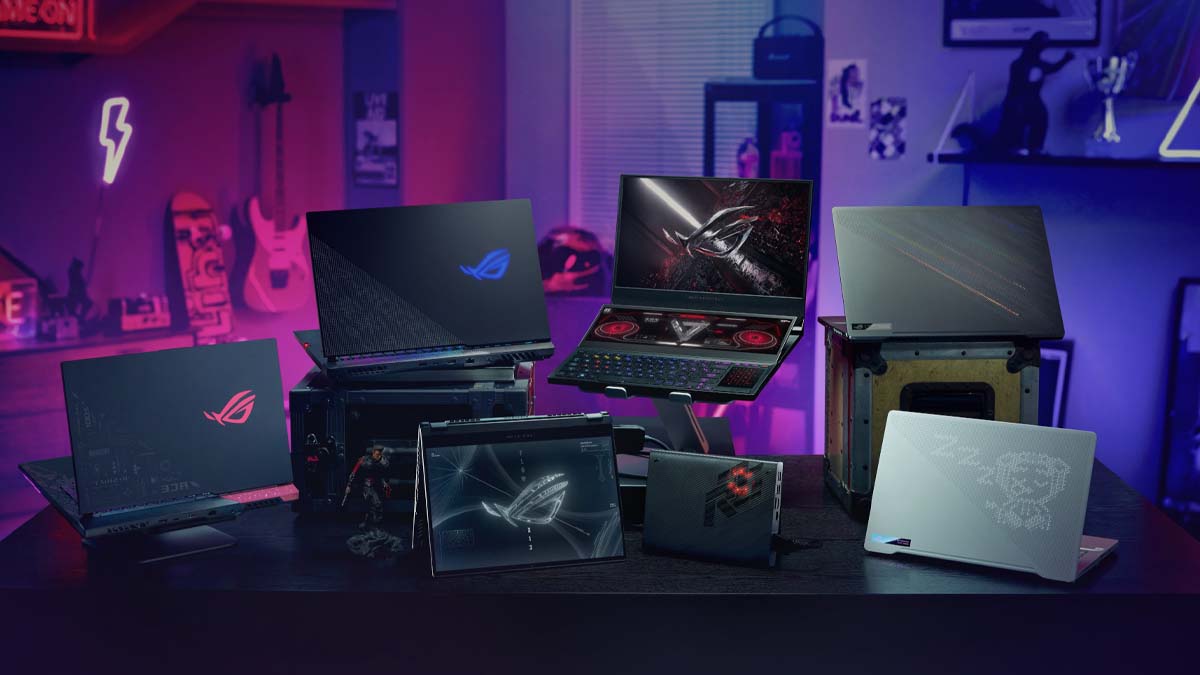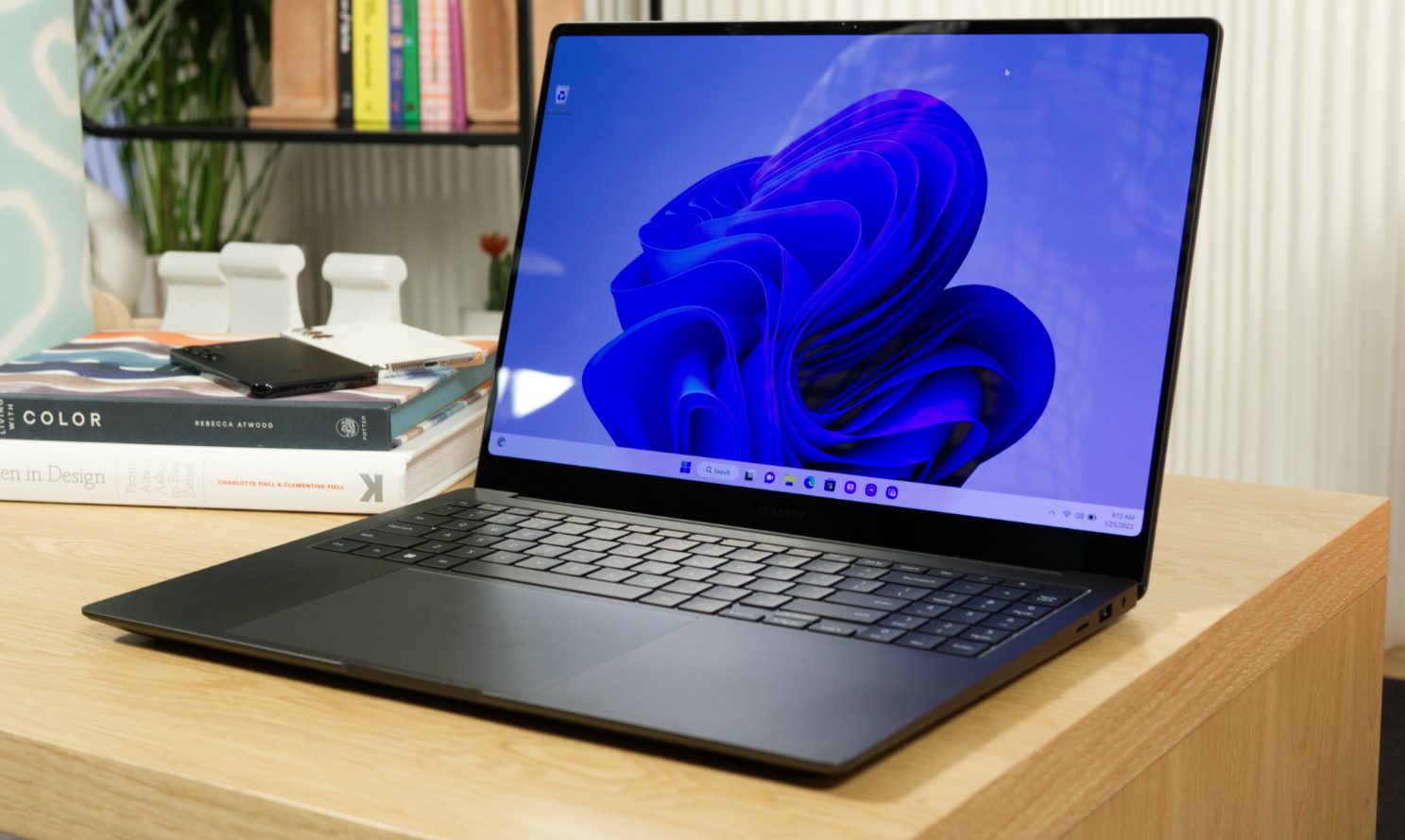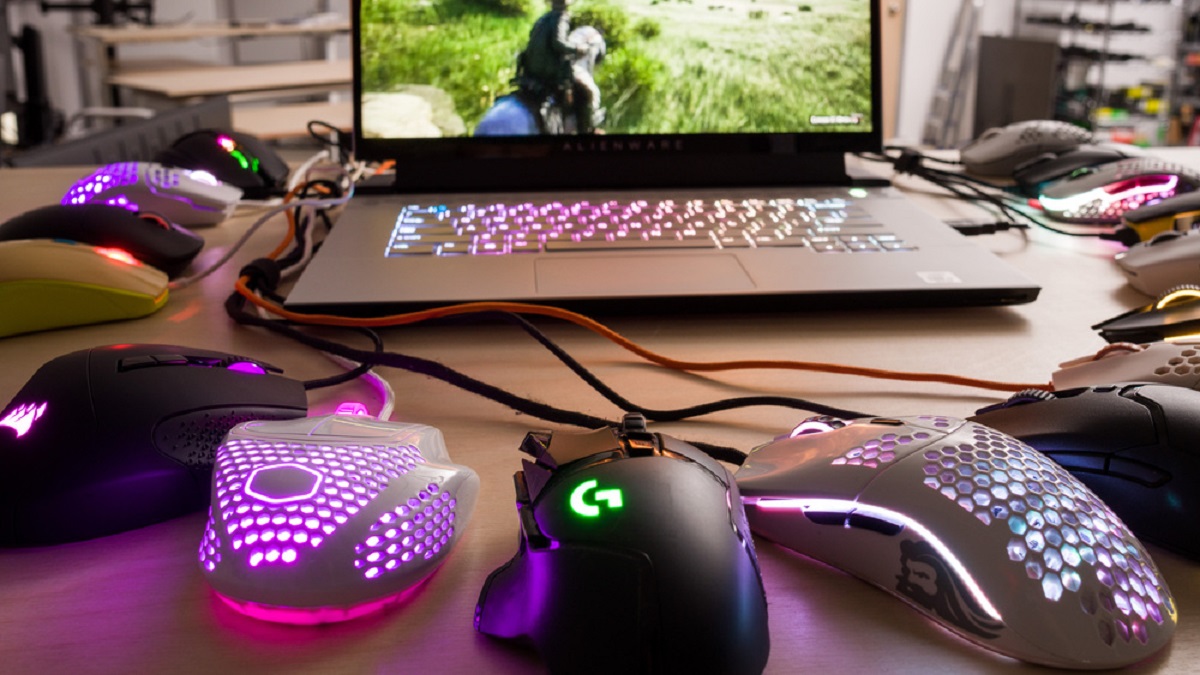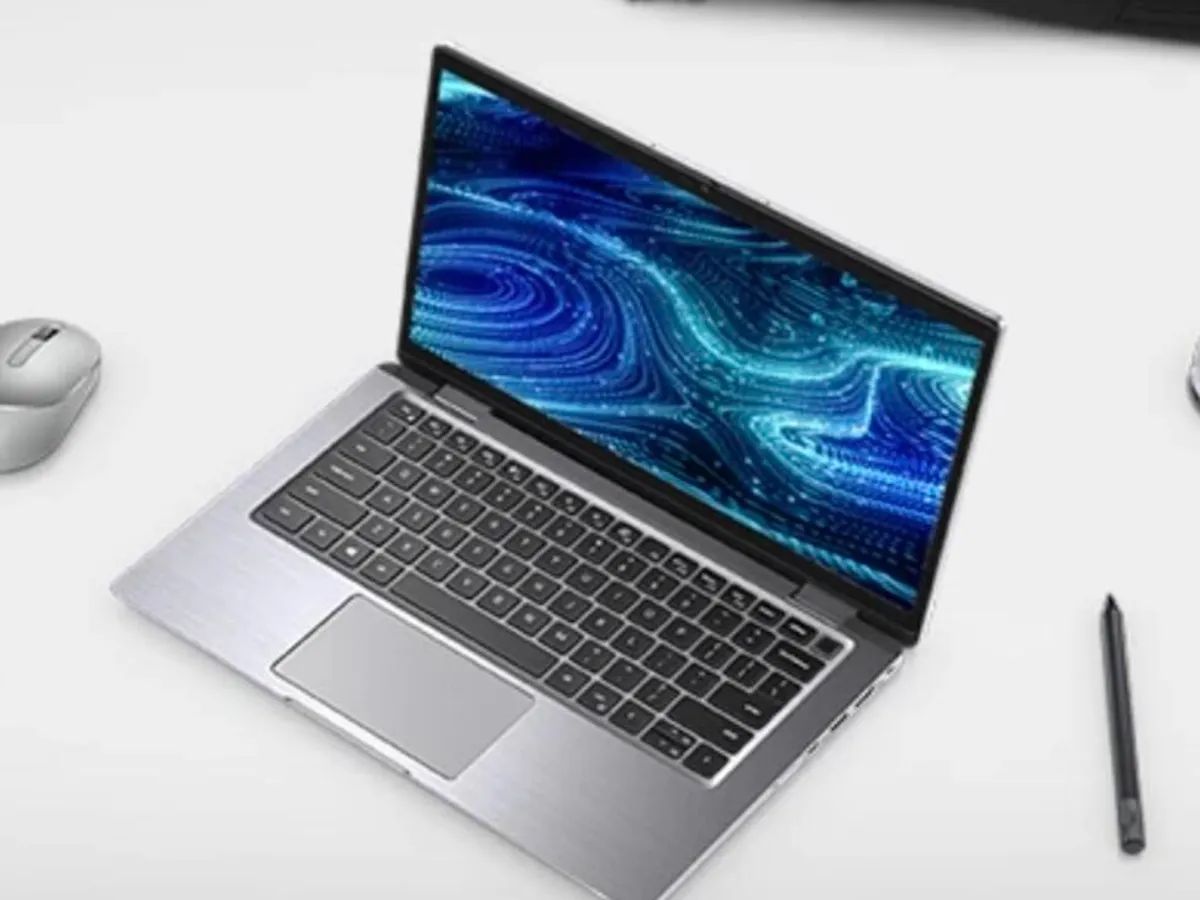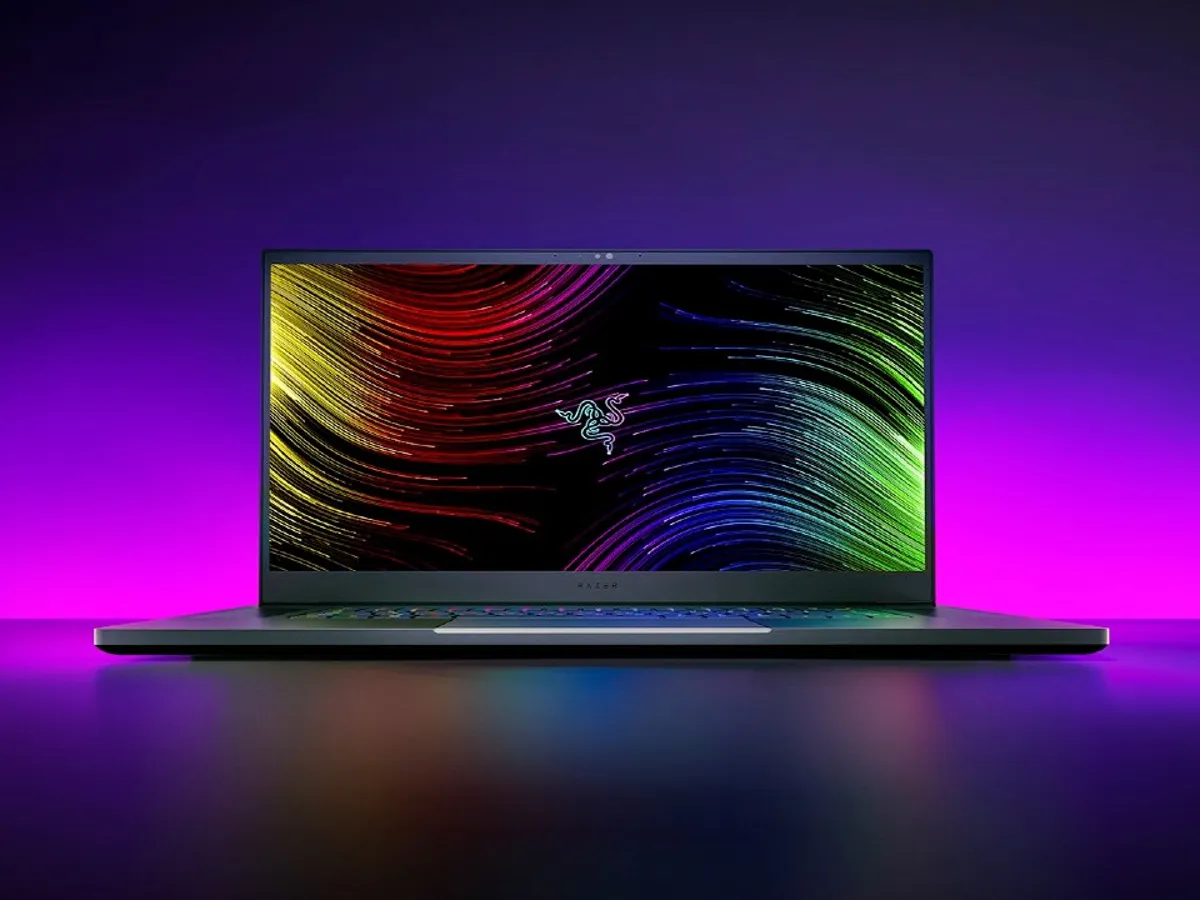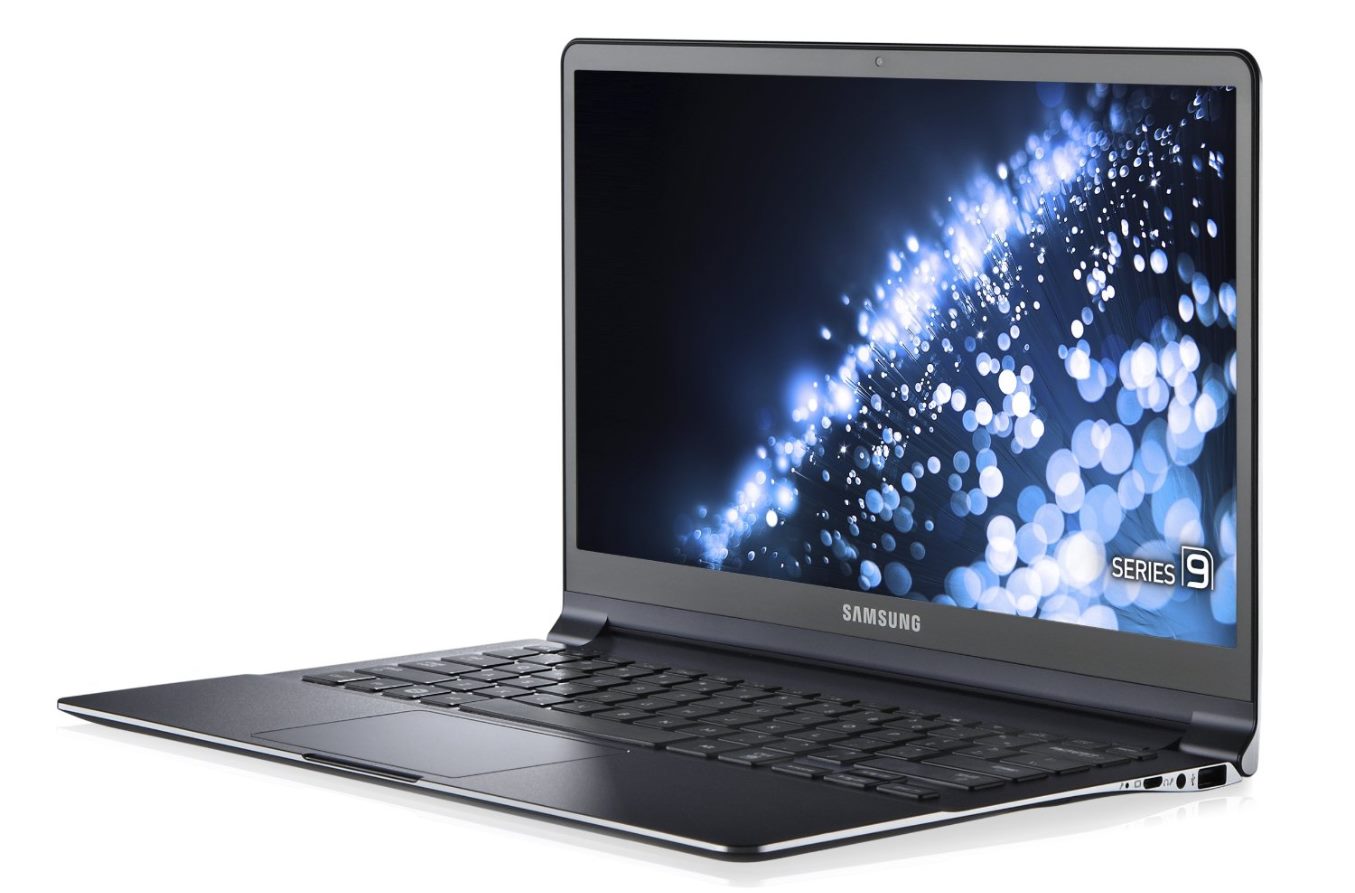Introduction
Welcome to the world of gaming laptops, where power, performance, and portability come together to provide an immersive gaming experience. Whether you’re a casual gamer or a competitive enthusiast, investing in a gaming laptop is a significant decision. One of the key considerations when purchasing a gaming laptop is its lifespan.
A gaming laptop is specifically designed for intense gaming sessions, featuring powerful hardware and impressive graphics capabilities. However, like any electronic device, gaming laptops have a certain lifespan that is determined by various factors. Understanding these factors can help you make an informed decision when choosing a gaming laptop that will last.
In this article, we will explore the factors that can affect the lifespan of a gaming laptop, including build quality, processor and graphics card, cooling system, system memory (RAM), storage type, battery life, gaming usage and intensity, as well as maintenance and care. By understanding these factors, you can get a better idea of how long your gaming laptop can potentially last.
It’s important to note that the lifespan of a gaming laptop can vary from one brand and model to another. However, by considering these factors and following proper maintenance practices, you can maximize the longevity of your gaming laptop and ensure that it continues to deliver optimal performance for years to come.
Factors Affecting the Lifespan of a Gaming Laptop
Several key factors can have a significant impact on the lifespan of a gaming laptop. Understanding these factors can help you make an informed decision when purchasing a gaming laptop and can also contribute to prolonging its longevity. Let’s take a closer look at these factors:
- Build Quality: The build quality of a gaming laptop plays a crucial role in its durability and longevity. Laptops with robust and sturdy construction, reinforced hinges, and quality materials are more likely to withstand the rigors of gaming and last longer.
- Processor and Graphics Card: The processor and graphics card are the powerhouse of a gaming laptop, responsible for delivering smooth gameplay and stunning visuals. Investing in a laptop with a powerful processor and a high-performance graphics card can not only enhance your gaming experience but also ensure that your laptop remains capable of handling upcoming game releases for a longer period of time.
- Cooling System: Gaming laptops generate a significant amount of heat due to their high-performance components. An efficient cooling system, consisting of fans and heat sinks, is essential to keep the internal temperature of the laptop within safe limits. Overheating can cause performance issues and lead to hardware failure. Opt for a gaming laptop with a robust cooling mechanism to ensure optimal performance and longevity.
- System Memory (RAM): Sufficient system memory is essential for smooth multitasking and gaming performance. Games are becoming more demanding, requiring larger amounts of RAM. Investing in a gaming laptop with ample RAM ensures that your system can handle future game releases and software updates, improving the longevity of your laptop.
- Storage Type: The type of storage in a gaming laptop can impact its lifespan. Solid-state drives (SSDs) are faster and more reliable compared to traditional hard disk drives (HDDs). SSDs have no moving parts, making them less prone to mechanical failure and providing improved durability. Consider opting for an SSD or a hybrid storage configuration to optimize lifespan and performance.
- Battery Life: Gaming laptops typically consume more power during gameplay, resulting in shorter battery life. Continuously draining and recharging the battery can affect its overall lifespan. To maximize the longevity, it is advisable to operate your gaming laptop while connected to a power source whenever possible and follow proper battery charging practices.
- Gaming Usage and Intensity: The way you use your gaming laptop and the intensity of your gaming sessions can impact its lifespan. Frequent and prolonged gaming sessions put more strain on the components, potentially leading to accelerated wear and tear. Taking breaks, properly ventilating your laptop, and avoiding excessive overclocking can help maintain its longevity.
- Maintenance and Care: Proper maintenance and care are crucial for increasing the lifespan of any electronic device, including gaming laptops. Regularly cleaning the laptop, keeping it dust-free, and updating drivers and software can improve performance and prevent hardware issues. Additionally, using a laptop cooling pad and avoiding accidental drops or impacts can contribute to prolonging its lifespan.
By considering these factors and making informed choices, you can not only choose a gaming laptop that suits your needs but also maximize its durability and longevity. Now that we have explored the factors affecting the lifespan of a gaming laptop, let’s delve into how long you can expect your gaming laptop to last in the next section.
Build Quality
The build quality of a gaming laptop is a crucial factor that can significantly impact its lifespan. A well-built laptop is more durable, resistant to physical damage, and can withstand the demands of intense gaming sessions. Here are a few aspects to consider when evaluating the build quality of a gaming laptop:
- Materials: High-quality materials, such as aluminum or magnesium alloy, are often used in premium gaming laptops. These materials offer superior strength and durability compared to plastic. Laptops constructed with robust materials tend to have a longer lifespan as they can withstand daily wear and tear.
- Sturdiness: A sturdy laptop chassis with reinforced hinges and a solid frame is less likely to suffer from structural damage. It can withstand the frequent opening and closing of the lid, reducing the risk of hinge failure. Laptops with a solid build are better equipped to handle the bumps and jostles that may occur during transportation.
- Screen: A durable screen with a reliable hinge mechanism is essential. A well-protected display panel minimizes the risk of cracks or breakage from accidental impacts. Additionally, laptops with reinforced screens are less prone to flexing, which can lead to screen damage over time.
- Keyboard and Touchpad: A high-quality keyboard and touchpad are important for comfortable gaming and everyday use. Look for laptops with responsive keys and a robust keyboard frame to ensure longevity. Backlit keyboards with adjustable brightness are also a desirable feature to consider.
- Portability: If you plan on carrying your gaming laptop frequently, portability becomes a key consideration. Slim and lightweight laptops with a sturdy build can withstand the rigors of travel. Look for laptops that have undergone MIL-STD-810G testing, which ensures they can withstand harsh environmental conditions and impact.
Investing in a gaming laptop with a solid and reliable build quality can provide peace of mind and prolong its lifespan. A well-constructed laptop is better equipped to handle everyday usage and the demands of gaming, reducing the risk of physical damage or hardware failure. However, it’s important to note that a durable build alone does not guarantee a long lifespan; other factors such as regular maintenance and proper usage also play a significant role.
Processor and Graphics Card
The processor and graphics card are the powerhouses of a gaming laptop, playing a crucial role in its performance and lifespan. These components are responsible for handling the demanding tasks of modern games and ensuring smooth gameplay with stunning visuals. Here’s how the processor and graphics card can affect the lifespan of a gaming laptop:
- Performance: A powerful processor and graphics card combination can handle the latest game titles and provide a smooth gaming experience. Opting for a laptop with a high-performance CPU and GPU ensures that your laptop remains capable of running future game releases for a longer period of time. This reduces the need for frequent upgrades and extends the lifespan of your gaming laptop.
- Heat Generation: Both the processor and graphics card can generate a significant amount of heat during intense gaming sessions. Excessive heat can cause components to degrade faster and lead to performance issues or even hardware failure. Gaming laptops with efficient cooling systems, including strategically placed fans and heat pipes, can help dissipate heat effectively, reducing the impact of temperature on the longevity of these components.
- Overclocking: Overclocking refers to increasing the clock speed of the processor and graphics card to achieve higher performance. While overclocking can boost gaming performance, it also increases the heat generated by these components. Extended periods of overclocking can put additional stress on the components, potentially shortening their lifespan. If you choose to overclock your laptop, it’s important to monitor temperatures and ensure proper cooling to avoid excessive strain on these components.
- Technology Advancements: Technology advancements in processors and graphics cards occur rapidly, with new generations being released regularly. As newer and more powerful components become available, gaming laptops with older processors and graphics cards may struggle to keep up with the demands of the latest games. Investing in a laptop with upgradable components, such as a socketed CPU or a graphics card slot, can help extend the lifespan by allowing you to upgrade these components in the future.
When selecting a gaming laptop, it’s important to consider the processor and graphics card as key factors that can impact both performance and lifespan. Investing in a laptop with a powerful CPU and GPU combination, efficient heat management, and future upgradability can help ensure that your gaming laptop remains capable and relevant for a longer period of time.
Cooling System
The cooling system of a gaming laptop is an essential component that directly impacts its lifespan and performance. As gaming laptops often generate a significant amount of heat during intense gameplay, an efficient cooling system is crucial to maintain optimal temperatures and prevent damage to internal components. Here are the key factors to consider when evaluating the cooling system of a gaming laptop:
- Heat Dissipation: Gaming laptops employ various mechanisms to dissipate heat generated by the processor, graphics card, and other components. These typically include strategically placed fans, heat pipes, and cooling vents. A well-designed cooling system ensures efficient heat dissipation, preventing overheating and maintaining the longevity of the internal components.
- Thermal Management: Advanced gaming laptops often feature thermal management technologies, such as thermal sensors and intelligent fan control. These technologies monitor the temperature of the components in real-time and adjust fan speed accordingly to ensure effective cooling. This proactive thermal management minimizes the risk of overheating, component damage, and performance degradation.
- Cooling Mechanism Placement: The placement of cooling fans and heat sinks within the laptop chassis is crucial for effective cooling. Laptops with multiple fans and strategically positioned heat sinks directly over the processor and graphics card can provide superior cooling performance. It’s also important to ensure that the cooling system is designed to properly distribute airflow to critical areas to prevent hotspots and maximize cooling efficiency.
- Software Control: Some gaming laptops offer software control over the cooling system, allowing users to manually adjust fan speeds to prioritize performance or noise levels. This enables users to customize the cooling system based on their preferences and requirements.
- Cleanliness: A clean cooling system is essential for optimal performance. Dust, debris, and pet hair can accumulate over time, obstructing airflow and reducing cooling efficiency. Regularly cleaning the cooling vents, fans, and heat sinks with compressed air or a soft brush can help maintain the cooling system’s effectiveness and prolong the lifespan of the laptop.
An efficient cooling system is essential for a gaming laptop’s longevity and performance. By investing in a laptop with a well-designed cooling system, you can ensure that your laptop remains cool even during extended gaming sessions, reducing the risk of overheating and component failure. Regular maintenance, such as cleaning the cooling system and ensuring proper airflow, further enhances the cooling system’s effectiveness and contributes to the longevity of the gaming laptop.
System Memory (RAM)
The amount and type of system memory, also known as Random Access Memory (RAM), in a gaming laptop can significantly affect its lifespan and overall performance. RAM plays a crucial role in multitasking, allowing the laptop to handle multiple tasks simultaneously and efficiently. Here’s how system memory can impact the lifespan of a gaming laptop:
- Smooth Multitasking: Adequate system memory is essential for smooth multitasking while gaming. With modern games becoming more demanding, having sufficient RAM ensures that the laptop can handle background processes, game updates, chat applications, and other tasks without negatively impacting gaming performance. Investing in a gaming laptop with ample RAM helps future-proof your device, as newer games may require increased memory capacity.
- Compatibility with Upcoming Games: Game developers constantly push the boundaries of hardware requirements to deliver more immersive experiences. Games released in the future may demand higher amounts of system memory to run smoothly. By selecting a gaming laptop with sufficient RAM, you can ensure that your laptop is capable of handling upcoming game releases, reducing the need for immediate upgrades and extending its lifespan.
- Optimal Performance: Insufficient RAM can result in performance bottlenecks, causing games to lag, stutter, or crash. When the system runs out of available memory, it relies on the slower storage drive, leading to decreased performance. Having ample system memory allows the laptop to process game data quickly and efficiently, resulting in a smoother gaming experience and improved overall laptop lifespan.
- Flexibility for Future Upgrades: Some gaming laptops allow for RAM upgrades, providing the flexibility to increase the memory capacity as needed. Investing in a laptop that supports upgrades allows you to adapt to future memory requirements without having to replace the entire device. This prolongs the laptop’s usability and lifespan as you can take advantage of advancements in memory technology.
- Memory Speed: In addition to the amount of RAM, the speed of the memory modules can also impact performance. Faster RAM modules can improve data transfer rates, reducing latency and enhancing overall system responsiveness. When selecting a gaming laptop, consider opting for models that offer higher-speed RAM options for better performance and potential future-proofing.
By investing in a gaming laptop with sufficient system memory, you can ensure smooth multitasking, optimal gaming performance, and compatibility with future game releases. Upgrading the memory or selecting a laptop with future upgradeability options further extends the lifespan of the device, as you can adapt to evolving memory requirements without the need for a full replacement.
Storage Type
The type of storage in a gaming laptop is an important consideration that can impact both the performance and lifespan of the device. There are typically two types of storage options available: traditional hard disk drives (HDDs) and solid-state drives (SSDs). Let’s explore how the choice of storage type can affect the lifespan of a gaming laptop:
- Reliability: SSDs are generally considered more reliable than HDDs. This is because HDDs consist of moving parts, such as spinning disks and read/write heads, which can be susceptible to mechanical failure over time. On the other hand, SSDs have no moving parts, making them more durable and less prone to physical damage that could affect the lifespan of the storage medium.
- Speed and Performance: SSDs offer significantly faster data transfer speeds compared to HDDs. This results in quicker boot times, faster game load times, and overall snappier system performance. By choosing an SSD for your gaming laptop, you can enhance the gaming experience and reduce the strain on other components, potentially increasing their lifespan.
- Power Efficiency: SSDs are more power-efficient compared to HDDs since they don’t require motors to spin disks. Lower power consumption not only helps to extend battery life but also generates less heat inside the laptop. By reducing heat buildup, SSDs contribute to a cooler operating environment, which can positively impact the lifespan of other components.
- Durability: As mentioned earlier, SSDs lack moving parts, making them more durable and resistant to shock and vibration. This durability makes SSDs better suited for portable gaming laptops that may be subjected to constant movement or accidental bumps. By minimizing the risk of physical damage to the storage, an SSD can help prolong the overall lifespan of the laptop.
- Future-Proofing: With the increasing size of game installations and updates, storage requirements continue to grow. Investing in a gaming laptop with a larger-capacity SSD provides ample storage for your gaming library, reducing the need for frequent storage upgrades. Additionally, SSD technology continues to evolve, with higher capacities becoming more affordable. Opting for a larger-capacity SSD or a laptop with upgradeable storage options ensures that your gaming laptop remains compatible with future storage needs.
Ultimately, choosing an SSD over an HDD for your gaming laptop can provide significant benefits in terms of reliability, speed, power efficiency, durability, and future-proofing. These factors not only enhance your gaming experience but also contribute to the longevity of the device by reducing the chances of data loss, mechanical failure, and performance bottlenecks.
Battery Life
The battery life of a gaming laptop is an important consideration that can impact not only its portability but also its lifespan. Gaming laptops tend to consume more power during gameplay, and a longer battery life ensures uninterrupted gaming sessions without the need for constant charging. Here’s how battery life can affect the lifespan of a gaming laptop:
- Usage Patterns: A longer battery life allows you to use your gaming laptop on the go, without the need for a constant power source. Frequent discharging and recharging cycles can affect the overall lifespan of the battery. By using your laptop while connected to a power source whenever possible, you reduce the strain on the battery, potentially extending its lifespan.
- Optimal Charging Practices: Proper charging practices can also contribute to the longevity of the battery in a gaming laptop. Avoid frequently fully draining the battery and instead aim to keep it charged between 20% to 80%. Overcharging or continuously keeping the battery at 100% can degrade its capacity over time. Following recommended charging practices outlined by the manufacturer can help maximize the battery’s lifespan.
- Heat Management: Heat is one of the factors that can adversely affect battery lifespan. Gaming laptops can generate a significant amount of heat during intense gameplay, and excessive heat can degrade battery performance over time. Investing in a laptop with an efficient cooling system helps maintain optimal operating temperatures, reducing the impact on the battery and potentially prolonging its lifespan.
- Battery Health Tools and Settings: Some gaming laptops offer battery management tools and software settings that help optimize battery health. These tools allow you to customize charging thresholds, set battery conservation modes, and monitor battery health. Utilizing these features can help manage battery capacity and extend its overall lifespan.
- Replacement and Upgrades: Over time, the battery’s capacity will naturally degrade, resulting in reduced battery life. When the battery life becomes significantly shorter, it may be time to consider a replacement. Many gaming laptops offer user-replaceable batteries, allowing you to easily swap out a worn-out battery with a new one. Upgrading to a higher-capacity battery can also extend the laptop’s lifespan by providing longer gaming sessions away from a power source.
By considering battery life and implementing proper charging practices, heat management, and potential battery replacements or upgrades, you can ensure that your gaming laptop stays powered for extended periods and maintains its battery health over time. A healthy battery not only contributes to a better gaming experience on the go but also helps prolong the overall lifespan of the gaming laptop.
Gaming Usage and Intensity
How you use your gaming laptop and the intensity of your gaming sessions can have a significant impact on its lifespan. Gaming laptops are designed to handle demanding games, but continuous and intensive usage can put stress on various components. Here are some factors to consider regarding gaming usage and intensity:
- Duration of Gaming Sessions: Prolonged gaming sessions generate more heat, increasing the temperature inside the laptop. Over time, excessive heat can cause component degradation and potentially lead to hardware failure. Taking regular breaks and allowing the laptop to cool down between gaming sessions helps maintain optimal operating temperatures and reduces the strain on the components.
- Proper Ventilation: Adequate airflow is crucial for cooling down the laptop during intense gaming sessions. Ensure that the laptop’s ventilation ports are not blocked by objects or obstructed by surfaces that diminish airflow. Using a laptop cooling pad or an elevated stand can help improve air circulation and prevent overheating, ultimately extending the lifespan of your gaming laptop.
- Overclocking: Overclocking, the process of increasing the clock speed of the CPU or graphics card to achieve higher performance, is a popular practice among gamers. While overclocking can boost gaming performance, it also increases heat generation and power consumption. Extended periods of overclocking can put additional stress on the components and potentially shorten their lifespan. It’s important to monitor temperatures, use reliable overclocking software, and ensure proper cooling if you choose to overclock your gaming laptop.
- Quality of Power Supply: A reliable and stable power supply is essential for the longevity of a gaming laptop. Poor-quality or unstable power sources, such as cheap chargers or fluctuating electricity, can stress the components and potentially cause damage. Investing in a high-quality power supply and utilizing surge protectors can help protect your gaming laptop from power-related issues and extend its lifespan.
- Avoiding Excessive Overuse: While gaming is enjoyable and immersive, it’s essential to strike a balance and avoid excessive usage. Continuous, prolonged gaming sessions not only strain the components but can also adversely affect your health and well-being. Taking breaks, engaging in other activities, and maintaining a healthy gaming routine can help preserve both your laptop and your personal interests.
- Optimizing In-Game Settings: Adjusting in-game settings to match the capabilities of your gaming laptop can help optimize performance and reduce strain on the system. High graphics settings that push the laptop to its limits can increase heat generation and put more stress on the CPU and graphics card. By finding the right balance between visual quality and performance, you can maintain a smoother gaming experience and potentially extend the longevity of your laptop.
By considering these factors and adopting healthy gaming habits, you can preserve the lifespan of your gaming laptop. Taking proper precautions such as allowing for adequate cooling, avoiding excessive overclocking, optimizing in-game settings, and using reliable power sources can help ensure that your gaming laptop remains reliable and performs optimally for years to come.
Maintenance and Care
Maintaining and caring for your gaming laptop is essential for maximizing its lifespan and ensuring optimal performance throughout its usage. Regular maintenance and proper care can help prevent issues and keep the laptop running smoothly. Here are some key maintenance and care practices to consider:
- Cleaning: Regular cleaning of your gaming laptop is important to prevent dust and debris buildup. Dust can accumulate on cooling vents, fans, and components, obstructing airflow and leading to overheating. Using compressed air or a soft brush, carefully clean the exterior and interior of the laptop to remove dust and maintain proper ventilation.
- Software Updates: Keeping the operating system, drivers, and gaming software up to date is crucial for optimal performance and compatibility with the latest game releases. Regularly check for updates from the manufacturer and install them to ensure that your laptop has the latest bug fixes, security patches, and performance optimizations.
- Virus Protection: Installing reputable antivirus software and regularly scanning your gaming laptop can help protect it from malware and potential security threats. Viruses and malware can not only compromise your data and privacy but also affect the performance and stability of your laptop. Regular scans and updates of the antivirus software help maintain a secure and reliable gaming environment.
- Optimal Storage: Maintaining adequate storage space on your gaming laptop helps prevent performance degradation and allows for smoother gaming experiences. Regularly manage your game library and remove unnecessary files to free up space on your storage drive. Additionally, consider organizing your files and folders for easy access and improved system performance.
- Safe Transportation: If you frequently travel with your gaming laptop, it’s essential to take precautions to protect it from damage during transit. Invest in a sturdy laptop bag or backpack with padded compartments to safeguard the laptop from bumps and impacts. Avoid placing heavy objects on top of the bag to prevent any pressure on the laptop.
- Temperature and Environment: Gaming laptops should be used within specified temperature ranges. Operating the laptop in extremely hot or cold environments can affect the performance and lifespan of the components. Ensure that the room temperature is within a suitable range and avoid exposing the laptop to direct sunlight or extreme temperature conditions.
- Care for Accessories: Gaming laptops often come with accessories, such as gaming mice, keyboards, and external cooling devices. Properly cleaning and maintaining these accessories is important to ensure their longevity and optimal performance. Follow manufacturer guidelines for cleaning and storing these accessories to avoid damage or performance issues.
- Backup and Data Protection: Regularly backing up important files and data is essential in case of unforeseen events, such as hardware failure or accidental damage. Utilize external hard drives, cloud storage, or other backup solutions to keep your valuable data safe. This practice not only protects your personal files but also facilitates a smooth transition if you need to replace or upgrade your gaming laptop in the future.
By adhering to these maintenance and care practices, you can prolong the lifespan of your gaming laptop and ensure optimal performance for an extended period. Regular cleaning, software updates, virus protection, proper storage management, safe transportation, and attention to the laptop’s environment contribute to a reliable and long-lasting gaming experience.
How Long Can You Expect a Gaming Laptop to Last?
The lifespan of a gaming laptop can vary depending on various factors, including the quality of its components, maintenance, usage patterns, and technological advancements. While it is challenging to determine an exact lifespan, here are some factors to consider when estimating how long a gaming laptop can last:
- Build Quality: Gaming laptops with higher build quality, including durable materials and solid construction, are generally more likely to have a longer lifespan than those with lower build quality.
- Component Performance and Upgradability: Investing in a gaming laptop with high-performance components, such as a powerful processor, graphics card, and ample RAM, can ensure smooth gameplay and extend its longevity. Additionally, laptops that offer upgradability options, such as socketed CPUs or replaceable graphics cards, provide flexibility for future component upgrades, further prolonging the laptop’s lifespan.
- Maintenance and Care: Regular maintenance, including cleaning the laptop, updating software, and taking proper care of the battery, contributes to the overall lifespan of a gaming laptop. By following best practices and adopting a proactive approach to maintenance, you can optimize performance and prevent potential issues that may impact the longevity of the laptop.
- Technological Advancements: Gaming technology is constantly evolving, with new games and software putting increased demands on hardware. While gaming laptops can handle current games, future advancements may eventually require more powerful components. Investing in a laptop with higher specifications and upgradability options can help prolong its lifespan by ensuring compatibility with future game releases.
- Usage Patterns: How you use your gaming laptop and the intensity of your gaming sessions can influence its lifespan. Continuous and intensive usage, prolonged gaming sessions, and excessive overclocking can put additional strain on the components, potentially shortening their lifespan. Proper cooling, regular breaks, and mindful usage can help mitigate these effects and extend the overall lifespan of the laptop.
Generally, a gaming laptop can be expected to last between 3 to 5 years, depending on the factors mentioned above. However, it’s important to note that individual experiences may vary, and there are no guarantees when it comes to the lifespan of electronic devices. By investing in a high-quality gaming laptop, adopting proper maintenance practices, and keeping an eye on technological advancements, you can increase the likelihood of enjoying a reliable and long-lasting gaming experience.
Conclusion
Choosing a gaming laptop that can provide a long and satisfying gaming experience requires careful consideration of various factors. By understanding the factors that can affect the lifespan of a gaming laptop, such as build quality, processor and graphics card performance, cooling system efficiency, system memory, storage type, battery life, gaming usage, and maintenance, you can make an informed decision and maximize the longevity of your device.
Investing in a gaming laptop with a sturdy build quality and high-performance components can ensure durability and future-proofing. A robust cooling system helps maintain optimal temperatures and prevent damage from overheating. Sufficient system memory and fast storage options, such as solid-state drives, contribute to smooth multitasking and quick game load times. Proper care, including regular cleaning, software updates, and safe transportation, can further extend the lifespan of the laptop.
While it is challenging to determine the exact lifespan of a gaming laptop, a well-maintained and properly used device can generally last between 3 to 5 years. However, individual experiences may vary depending on usage patterns, advancements in technology, and personal preferences. By staying up to date with the latest hardware and technological advancements, you can potentially prolong the lifespan of your gaming laptop.
Ultimately, maximizing the lifespan of a gaming laptop requires a combination of good hardware choices, proper maintenance, and responsible usage. By considering these factors and implementing the recommended practices, you can ensure that your gaming laptop continues to deliver impressive performance, immersive gaming experiences, and lasting value for years to come.







